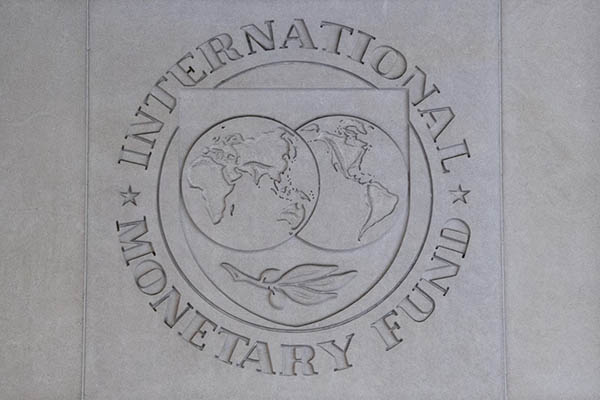
Jim Watson—AFP
Resumption of Extended Fund Facility accompanies undertaking for massive increase to taxes, utility prices
Pakistan has committed to not provide any new tax exemption or amnesty as part of terms agreed upon with the International Monetary Fund (IMF) to resume the Extended Fund Facility (EFF) that was stalled last year.
A Staff Report made public by the IMF on the second, third, fourth, and fifth reviews of the EFF that concluded last month reveals that the government has set ambitious targets for revenue generation, including by imposing the maximum possible levy on petroleum products (Rs. 30/liter) through the next year. According to the IMF, this would generate Rs. 510 billion in revenues against a budgeted target of Rs. 450 billion. For the next fiscal, this target has been raised to Rs. 607 billion.
To secure a $500 million tranche of the EFF, Islamabad has committed to not provide any new tax amnesties or exemptions, with a letter of intent signed by former finance minister Abdul Hafeez Shaikh and State Bank of Pakistan Governor Reza Baqir stressing that the construction amnesty—which Information Minister Shibli Faraz had described as a “golden opportunity” to whiten black money—would be monitored to mitigate “potential money laundering and terrorist financing.”
Transparency
The government has committed to ensuring transparency of its COVID-related spending, stressing that the ongoing measures would remain “targeted and temporary.” It said that all awarded contracts and beneficial ownership information would be provided on a publicly accessible website by the end of April, adding that the procurement of COVID-related supplies and social payments would be audited by the Auditor General of Pakistan and published on the Ministry of Finance’s website—also by the end of April.
Islamabad maintains that the provinces have pledged to provide Rs. 570 billion cash surplus to the federal government this year, and increase it further to Rs. 729 billion next year.
According to the government, it would establish a “debt management office” in line with World Bank and IMF recommendations. “Our policies remain centered on entrenching monetary and financial stability by maintaining a market-determined exchange rate, lowering inflation, and building foreign exchange reserves,” it said.
Taxation
In its undertaking, Pakistan has committed to increase taxation revenue by Rs. 1.272 trillion in the upcoming fiscal, and hike electricity rates by nearly Rs. 5/unit in the remaining three months of the current fiscal. The electricity tariff adjustments are set to increase further in the next few years, with the government pledging to undertake monthly, quarterly and annual adjustments through the amended powers of autonomy granted to regulator NEPRA.
Despite admitting that its tax revenue target for the current fiscal was “not attainable,” the government has committed to a Rs. 5.963 trillion target for the next budget, against the Rs. 4.691 trillion revised target for the current fiscal. Part of this would be additional taxes of around Rs. 500 nillion through “general sales tax and a personal income tax reform with the FY2022 budget, yielding an estimated 1.1 percent of GDP.”
The agreement also envisages the government reducing the current fiscal’s development program to Rs. 1.169 trillion against its budgeted target of Rs. 1.324 trillion. Islamabad has agreed to broaden the GST base by eliminating all zero-rated goods except for export and capital machinery goods, and moving them all to the standard sales tax rate. Additionally, it has decided to remove reduced rates under the Eighth Schedule and bring all those goods to a standard sales tax rate. Exemptions would remain on basic food, medicines, livestock for human consumption, education and health-related goods.
The tax rate for cellphone would also be brought in line with the standard rate, reads the undertaking, with the government saying it should bring in an estimated 0.7 percent of GDP annually.
The government has also committed to reforming the existing personal income tax regime by reducing the number of rates and income tax brackets from 11 to five and decreasing the size of income slabs. As part of these measures, special tax procedures would be introduced for small taxpayers to curb tax base erosion and facilitate formalization of the economy to reduce labor informality and bring additional citizens into the tax net. This, says the government, is expected to yield 0.4 percent of GDP annually.
Tough decisions
The IMF documents confirm that Pakistan completed five prior-actions to revive the EFF, including imposing Rs. 3.57/unit increase in electricity tariff and submitting legislation in Parliament to amend the powers of the State Bank of Pakistan. This is in contrast to claims by Finance Secretary Kamran Ali Afzal, who had told a National Assembly Standing Committee on Finance that the SBP amendment bill was yet to be submitted in Parliament. According to the government, it expects Parliament to adopt the legislation by the end of September.
Addressing a briefing to release the documents, IMF mission chief for Pakistan Ernesto Ramirez Rigo said steep adjustments in electricity tariffs were “inevitable” to clear the circular debt that was impacting the country’s economic growth. Admitting that the adjustments would prove troubling for citizens, he said the government could overcome their impact by improving cost recoveries, loss reduction and system improvement. He also claimed that the removal of tax exemptions, including GST, was a tough sell in a political economy but was essential to broadening the tax base.
